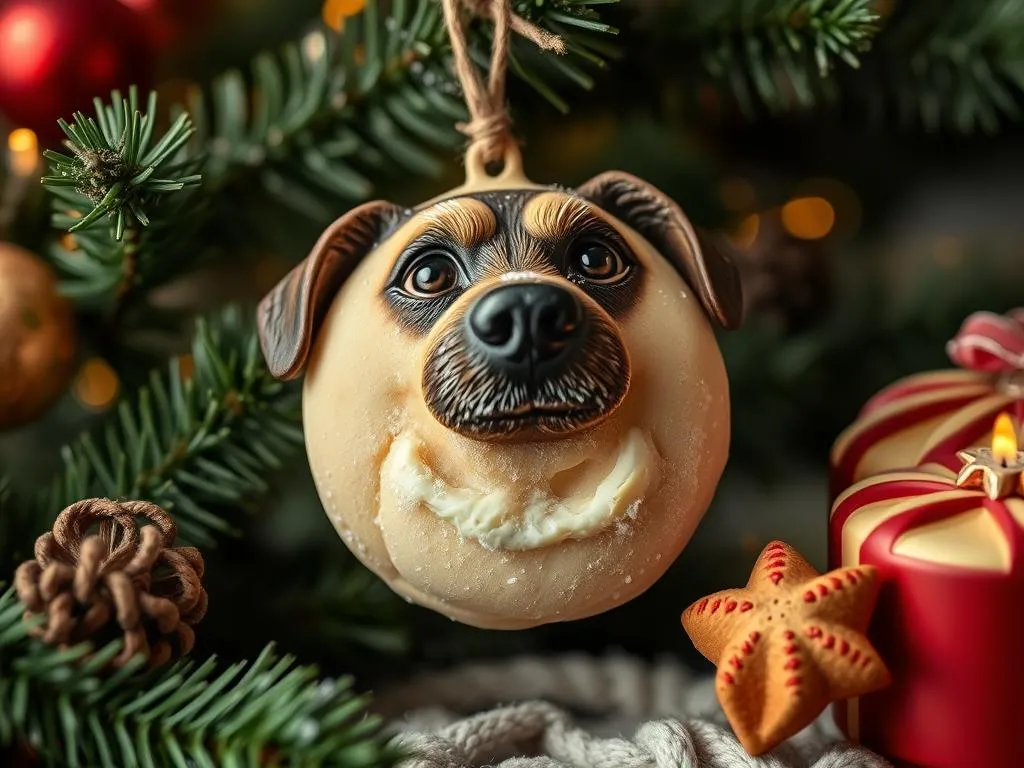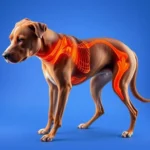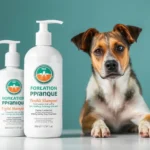
Imagine this: you’ve just finished decorating your home for the holidays, lovingly hanging up handcrafted salt dough ornaments that your kids made during a fun afternoon. Then, just as you’re admiring your festive decor, you catch your dog with a suspiciously shiny object in their mouth. Panic sets in as you realize—my dog ate a salt dough ornament! What do you do next?
Understanding the implications of a dog consuming a salt dough ornament is crucial for any pet owner. Salt dough is not just harmless play dough; it contains ingredients that can be detrimental to your dog’s health. This article will guide you through the potential risks associated with salt dough ingestion, the symptoms to watch for, and the steps you should take if your dog happens to indulge in this festive treat.
Understanding Salt Dough Ornaments
What is Salt Dough?
Salt dough is a versatile crafting material made from a simple mixture of flour, salt, and water. It’s often used for making ornaments, handprints, and other decorative items. Once baked, salt dough becomes hard and sturdy, making it ideal for crafting projects that can withstand handling and display.
Why Are Salt Dough Ornaments Popular?
Salt dough ornaments have gained popularity as a fun and creative way for families to bond during the holiday season. They serve as personalized gifts and cherished decorations that can be kept for years, often carrying sentimental value. The DIY aspect of creating these ornaments allows families to engage in memorable activities that can be passed down through generations.
Potential Risks of Dogs Eating Salt Dough Ornaments
Immediate Health Risks
When it comes to your dog consuming a salt dough ornament, there are immediate health risks to consider.
High Sodium Content: Salt dough contains a significant amount of sodium due to the salt in its recipe. If a dog ingests a large quantity, it can lead to salt toxicity, potentially resulting in serious health issues.
Choking Hazards: In addition to sodium toxicity, the size and texture of salt dough ornaments can pose choking risks. If the ornament is large or not adequately chewed, it can become lodged in the dog’s throat, leading to a choking emergency.
Long-term Health Implications
Ingesting salt dough can have long-term health implications as well.
Kidney Damage: High sodium levels can put excessive strain on your dog’s kidneys, potentially leading to kidney damage over time. This is especially concerning if ingestion occurs frequently or if your dog has pre-existing kidney issues.
Gastrointestinal Blockage: If your dog consumes a large piece of a salt dough ornament, it could cause a blockage in the gastrointestinal tract, which may require surgical intervention to resolve.
Symptoms to Watch For
Early Symptoms of Salt Toxicity
If your dog has consumed a salt dough ornament, it’s essential to monitor them closely for symptoms of salt toxicity. Early signs include:
- Thirst and Urination Changes: You may notice your dog drinking more water than usual or urinating frequently.
- Vomiting and Diarrhea: Gastrointestinal upset is a common response to salt ingestion, leading to vomiting and diarrhea.
Severe Symptoms
As salt toxicity progresses, more severe symptoms may emerge, indicating a need for immediate veterinary care:
- Neurological Signs: Watch for tremors, seizures, or disorientation, which can occur due to electrolyte imbalances caused by excessive sodium.
- Lethargy and Lack of Appetite: If your dog seems unusually tired and is refusing to eat, these could be red flags that require attention.
What to Do If Your Dog Eats a Salt Dough Ornament
Immediate Actions
Stay Calm: It’s crucial to remain composed. Your anxiety can affect your dog’s behavior and stress levels.
Assess the Situation: Evaluate whether your dog is displaying any immediate symptoms. If they appear fine, it’s still best to monitor them closely for any changes.
When to Contact Your Veterinarian
If your dog shows any symptoms or if you know they’ve consumed a significant amount of salt dough, contacting your veterinarian is essential. Provide clear details, including:
- The size of the ornament
- The ingredients (if known)
- Any symptoms your dog is exhibiting
This information will help your vet determine the best course of action.
Veterinary Treatments
Common Veterinary Procedures
If your dog ingests a salt dough ornament and exhibits concerning symptoms, your veterinarian may perform the following procedures:
- Inducing Vomiting: If the ingestion occurred recently, your vet might induce vomiting to prevent further absorption of sodium.
- Administration of Activated Charcoal: In some cases, activated charcoal may be given to help absorb toxins in the gastrointestinal tract.
Monitoring and Follow-up Care
After treatment, monitoring your dog for any lingering symptoms is crucial. Your veterinarian may recommend follow-up appointments to check on your dog’s recovery and possibly conduct blood work to assess kidney function.
Preventing Future Incidents
Safe Storage Practices
To prevent your dog from consuming salt dough ornaments in the future, implement safe storage practices:
- Keep Ornaments Out of Reach: Store salt dough ornaments and other potentially harmful items in high places or closed cabinets.
- Educate Family Members: Make sure everyone in your household understands the importance of pet safety and the risks associated with certain household items.
Alternative Pet-Friendly Holiday Decorations
Consider using dog-safe decorations to keep the festive spirit alive without the risk. Here are some pet-friendly alternatives:
- Fabric Ornaments: Use soft, non-toxic fabrics to create ornaments that are safe for pets.
- Wooden Decorations: Craft or purchase wooden decorations that are durable and non-toxic.
- DIY Dog Treat Ornaments: Get creative and make ornaments out of dog-safe ingredients like peanut butter and oats!
When to Seek Help: Emergency vs. Non-Emergency
Emergency Situations
Certain situations warrant immediate veterinary attention. If your dog exhibits any severe symptoms, such as:
- Difficulty breathing
- Persistent vomiting or diarrhea
- Seizures or tremors
Do not hesitate to seek emergency care.
Non-Emergency Situations
If your dog shows mild symptoms and seems stable, monitor them closely at home. Keep an eye on their water intake, appetite, and overall behavior. If symptoms worsen or do not improve within a day, contact your veterinarian for advice.
Conclusion
In summary, if my dog ate a salt dough ornament, it’s vital to remain calm and informed. Recognizing the potential risks associated with salt dough, being vigilant about symptoms, and knowing when to seek veterinary care can make all the difference in your dog’s health. By taking proactive steps to prevent future incidents and choosing safer alternatives for holiday decorations, you can keep your furry friend safe and healthy. Remember, staying informed and aware is the best way to protect your beloved pets.









